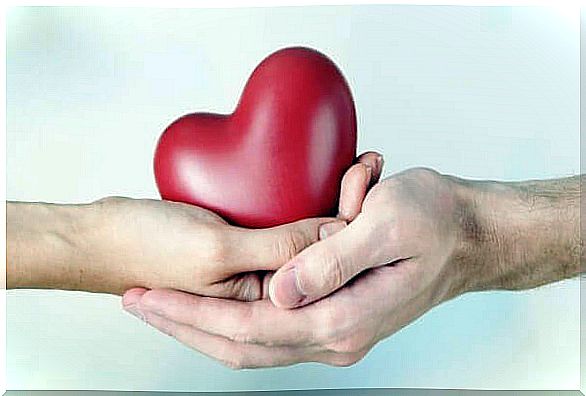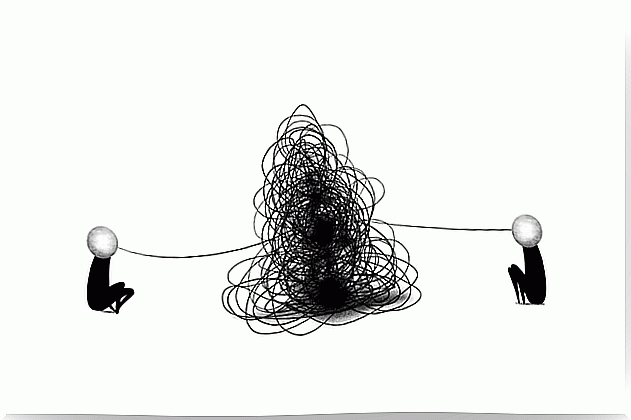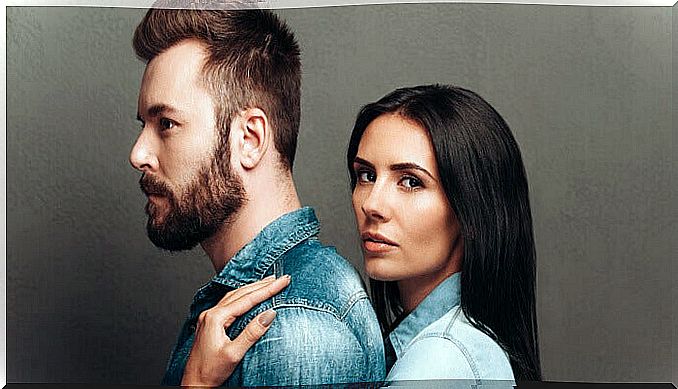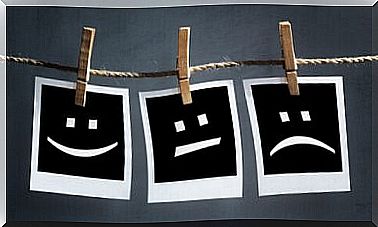Givers And Receivers In Affective Relationships

In emotional relationships, it is very rare that there is a perfect balance between giving and receiving. It is common to see the classic givers and receivers immersed in this game where only one of them wins. The taker remains with the energy, vitality and all the emotional investment of a giver convinced that in love, there is no limit, that the fact of loving allows to grant everything to the other.
Although the term seems strange to us, in relational and emotional matters it is common to witness genuine emotional suicides. It is curious to see how some drive safely on the road, take care of their diet and are concerned with playing sports and leading an active life but when it comes to love, however, do not hesitate to jump into the void in parachute.
In a relationship, not everything is possible and it is important to remember it. Making the other our reason for being and being for this person all that he could need, want or ask for, produces important consequences. Givers and takers over-develop all relational bonds. They are people unable to achieve an adequate balance between giving and receiving and who in addition, fall into the most unhealthy extremes, where real happiness occurs very rarely.

The cycle of reciprocity as a key to well-being
Friedrich Nietzsche said that giving a gift confers no rights and no obligations on the recipient. We could agree with this statement, however, whether we like it or not, there are always little “nuances”. Gifts are exchanges that involve a certain reciprocity, uniting givers and receivers in many ways.
For example, I can give a material gift to a friend. I don’t expect (and don’t want) to return it to me. I’m just giving this gift because I want to honor the affection, support and positivity that this person brings to me in life. Between us, therefore, there is already a reciprocity, a link already unites us which comes to represent the dynamic and proactive balance in which we both win.
Whether we like it or not, we need this constant feedback link where giving and receiving becomes one and the same, where we are all givers and receivers at the same time. This is so for a very simple reason: human beings are cooperative by nature. In fact, cooperating has allowed us to move forward as a species knowing that we are loved, cared for, valued and even protected. Thus, these behaviors give our brain a clear sense of belonging and well-being.

What if there is no reciprocity and I only convert to a “donor”?
There is a very interesting work called “Autonomous motivation of prosocial behavior and its influence on the well-being of the caregiver and the receiver” , published in the journal Personality and Social Psychology of 2010, which highlights some rather curious data.
- There are people who are “donors” by nature. In fact, the act of giving is part of their personality and this is how they understand the dynamics of their relationships.
- “Giving” (giving attention, affection, helping, caring, etc.) gives them a better self-esteem and a feeling of positivity, energy and personal dignity.
- On the other hand, in this type of situation two things can happen. The first is that other people (those who receive) feel pressured or even in an awkward position because of this constant helping behavior, uninterrupted favors, sacrifices for others.
- The second fact is obvious. Sooner or later a phenomenon known as “sunk costs” will emerge. In fact, the giver may find himself in a situation where he discovers that many of his actions are neither valued nor recognized. Everything he invested, time, affection and energy will never be recouped. He will think it made no sense and he will end up losing his self-esteem …
Givers and recipients, two constant figures in our relationships
Ana and Pablo have been in a relationship for 8 months. Ana is the “giver” and she does everything for her partner. She pays attention to detail and cares for him. He likes to foresee his necessities or the things that might please him at a given time. Pablo for his part “lets himself go”. As he sees his partner happy by leading this series of behaviors he has started to show a more or less passive or even dependent attitude.

This is a small example of what can happen very often in our relationships that little by little gives birth to donors and recipients. Sometimes we ourselves generate series of dynamics which later will eventually crystallize into dysfunctional situations. However, it is not a question of looking for the culprits, but of understanding certain things:
- We can allow one of the two to “invest” a little more in the relationship at some point. On the other hand, it will not be a model and even less a rule. A clear responsibility of both members of the couple is to be involved equally in the relationship, so that the costs and benefits are similar for both.
- We deserve to receive. Sometimes a person has spent so much time “giving” that they no longer really know the meaning of “receiving” every now and then. The reverse is also happening. One who has spent half of his life receiving attentions and consideration can experience a pleasurable sensation knowing the meaning of giving and giving from the heart.
Finally, an interesting aspect to reflect on about donors and recipients is that we also should not obsess over the classic 50/50 in search of a perfect and millimeter balance of investments and gains in a couple relationship. . People give in very different ways and at different times.
The important thing is to know that there is reciprocity, that the person is there for us and that what we offer with the heart is received with full hands and returned with profit when we need it.









